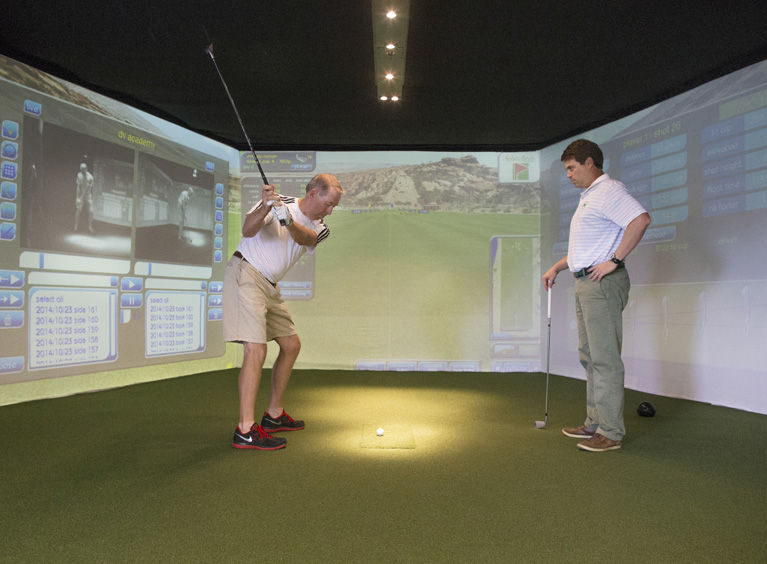
You’ve done well. You left the rat race behind. You have the time and the means to play plenty of golf and, living in Vero Beach, you’re in the perfect place to do just that. Then, seemingly out of nowhere, your own body starts making you pay for every hole you play.
Talk about frustration! New grips won’t solve this problem and neither will a new set of clubs. Your doctor may be able to ease that lower back pain or your sore knees or shoulders, but he or she probably won’t be able to help with your lack of distance off the tee, let alone those iron shots that are starting to fly off the toe of the club, deep into the Florida rough. Someone like Michael Hauser, however, may be able to help with all those problems.
Hauser, a Vanderbilt University graduate with a master’s degree in physical therapy, has been a physical therapist for 20 years and for the past 10 year he has worked extensively with golfers.
He also has the biggest name in golf, Titleist, behind him. Literally. He carries the “Titlist Performance International Certified Medical Professional” initials, as well as those of a “Certified Golf Fitness Instructor,” after his name. In fact, he says, he is the only Titleist level-two professional on the Treasure Coast and his Back In Form physical therapy office is just a sand wedge away from the beach at 4445 Highway A1A on the barrier island.
Vero resident Donald Winkler says, “After shoulder surgery, my surgeon told me I would probably have to give up golf and take up a less rigorous form of exercise. At 66 years old, after participating in Back In Form’s program, I’ve never felt better. I’m improving my swing fundamentals, strength, balance and flexibility and have lowered my golf scores pain free.”
Donald Heeter, another of Hauser’s patients, offered an equally effusive endorsement. “I stopped playing because of back pain,” he says. “My orthopedist told me I had arthritis in the facet joints in my back and that my golfing days were done, [but] I am now back to playing the way I did 10 years ago. I have picked up 20-30 yards off the tee and I have taken nine shots off my handicap.”
Most of the problems senior golfers face are related to natural, age-related changes in posture, balance and muscle tone, according to Hauser. Men most frequently complain of lower back pain while women golfers report more problems with their wrists, elbows and shoulders. Hauser says in many cases custom-crafted exercise routines can help correct those problems fairly easily. Other patients may require more complex treatment.
Hauser says he works with a number of area pros and golf clubs including John’s Island, Quail Valley, Vero Beach Country Club, Bent Pine and Windsor to help pros “get their students into the positions they want” so they can work more successfully on improving the golfers’ games.
While it might seem unlikely anyone would actually look forward to starting a course of physical therapy, the setup at Back In Form might just change that, too. For starters, the panoramic view of Bethel Creek doesn’t hurt, and Hauser’s huge golf course simulator provides perfect motivation to grip it and rip it all the way back to the better balance, flexibility and muscle tone that helps allow for more and better golf.
Heeter underwent post-knee-replacement rehab with Hauser as well as treatment for his back and now says, “My knee is great. I went to Philadelphia last week to play Merion Golf Club and Pine Valley. I was really pleased that I could walk both rather hilly golf courses, on consecutive days, without any problems.”
Can Hauser – or any physical therapist – turn an average golfer into a PGA touring pro? No. However, with the right course of physical therapy, more senior golfers probably can play more golf for more years and enjoy the game more.



